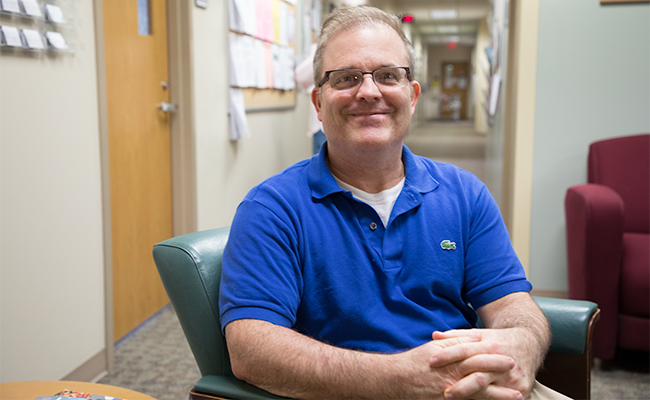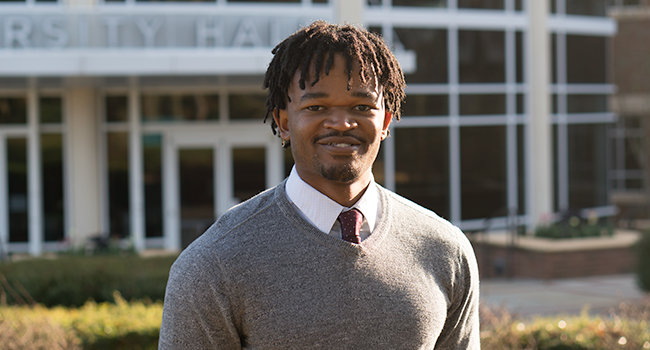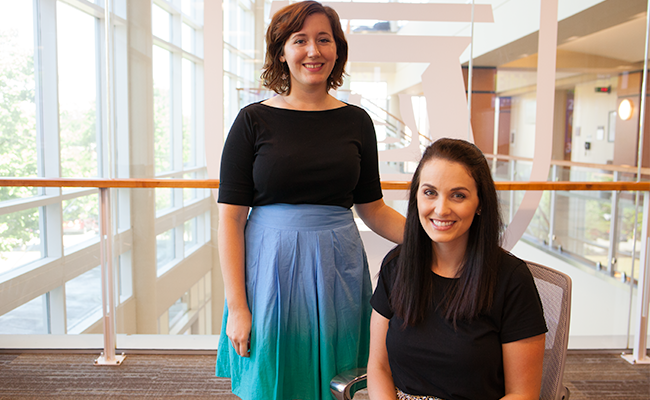KEY HIGHLIGHTS
Richard Deaner, PhD
Program Coordinator
rdeaner@augusta.edu
Lakeisha Thigpen
Admission and Certification Coordinator
akthigpen@augusta.edu
The Counselor Education Master of Education (MEd) prepares candidates for professional careers as counselors in schools or clinical mental health settings (including private practice). Each program is structured in a meaningful manner that allows the candidate to grow personally, educationally, and professionally as a dynamic counselor who is prepared to enhance the lives of diverse students and/or clients across the lifespan.
Both the School Counseling and the Clinical Mental Health Counseling programs are accredited by the Council for the Accreditation of Counseling and Related Educational Programs (CACREP). This nationally recognized CACREP-accreditation ensures that both programs adhere to the highest standards regarding training counselors. The notion of social justice is promoted within the programs as candidates become aware of social barriers and possibilities regarding future professional aspirations. Both programs provide learning opportunities and experiences whereby candidates build awareness, knowledge, and skills as a culturally sensitive counselor while aspiring to become a change agent in schools and communities.
CONCENTRATIONS
School Counseling concentration prepares candidates who are eligible to become certified school counselors.
Clinical Mental Health Counseling (CMHC) concentration prepares candidates who are eligible to become Licensed Professional Counselors.
WHAT CAN I DO WITH A MED IN COUNSELOR EDUCATION?
A degree in School Counseling allows an individual to become eligible to earn certification as a school counselor and to work in P-12 schools. A degree in Clinical Mental Health Counseling (CMHC) allows an individual to become a Licensed Professional Counselor (LPC).
According to current Georgia licensure requirements, a graduate with an M.Ed. (from a CACREP – accredited program) must accrue three-years post-master’s clinical experience under the supervision of an approved clinical supervisor in order to earn LPC status. An M.Ed. in CMHC will allow an individual to gain employment in settings such as hospitals and/or community agencies (military and civilian) while earning LPC status. Once a candidate earns LPC status, they will be able to seek employment as an LPC in a private practice setting.

"Our program trains counselors to become dynamic professional practitioners in school
and clinical mental health settings by attending to the needs of diverse populations
while incorporating contemporary research and best practices. Join our programs and
make a difference!"
Richard Deaner, PhD

"I chose AU because I really connected with the professors during the interview process
for acceptance into the program. There were some hoops I had to jump through, but
Dr. Rausch fought hard for me. She and the other professors have proven time-after-time
that they are there for my success. They believe in me and I felt that from day one.
It makes me want to be the best student and future counselor I possibly can.”
Randy LaMons >>

Katy and Kate really excelled in the program says Richard Deaner PhD., Program Director for the Master of Education in Counselor Education. Deaner explains, “Both students went above and beyond the requirements of the program while conducting research and presenting at national and regional professional conferences.”